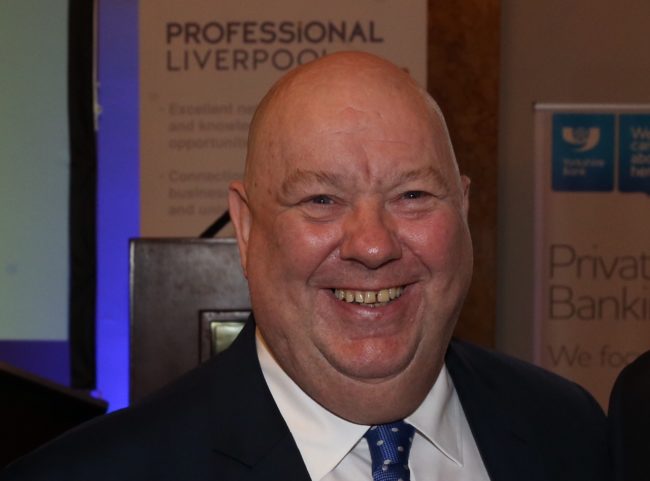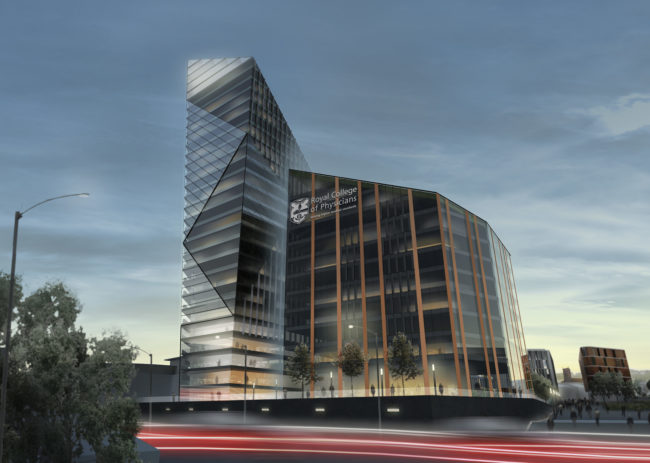City’s elected Mayor met with Liverpool business people at a city council budget consultation session at Liverpool & Sefton Chamber of Commerce. Tony McDonough reports.

Liverpool’s elected Mayor Joe Anderson has called on local business leaders to help accelerate the city’s growth as the council grapples with crippling budget cuts.
Mayor Anderson met with Liverpool business people at a city council budget consultation session at Liverpool & Sefton Chamber of Commerce.
He painted a stark picture of the city’s finances saying that since first being elected Mayor in 2010 the the authority had had to make a whopping £420.5m in cuts, adding it needed to find another £90.2m in savings over the next three years.
However, addressing the session Mayor Anderson said there was a massive strategy under way to improve infrastructure and attract business investment into Liverpool.
Key strategies
He said : “I have two main priorities: the first is to make sure we have a strategy to protect the most vulnerable people in the city.
“Secondly, we need to grow the economy. If we don’t do that then we cannot sustain ourselves in the long term.”
He talked about some of the projects in that growth strategy, including the new cruise liner terminal, regeneration of Anfield, the 10 Streets scheme which aims to transform the North Docklands, a new road offering a direct link to the waterfront, and the £1bn Paddington Village project in the city’s Knowledge Quarter.
“We are confident Paddington Village will deliver significant investment returns,” the Mayor added.

He also said the city would borrow £1bn at very low interest rates to build 10,000 new homes over the next 12-14 years.
“This will generate an extra £11m per year in Council Tax and once the debt is paid off it will generate total revenues per year of £27m,” he said.
Record as Mayor
Mr Anderson defended his record since he was first elected in 2010 acknowledging he had faced significant criticism.
In 2013 the council acquired the waterfront Cunard Building for £10.4m to use as its new headquarters and spent a further £3m refurbishing it.
At the last valuation the building was deemed to be worth more than £27m and brings in £1.3m in revenue a year.
“That was a great investment for the city,” Mayor Anderson said.
He also said he had overseen the building of 14 new schools and defended his record on helping the homeless insisting there was enough accommodation but added that homelessness was a complex issue that was not just about putting a roof over peoples’ heads.
Council tax conundrum
He talked about how Liverpool’s relatively low property values hampered the city’s efforts to raise more cash via Council Tax for services such as adult social care.
Late last year he proposed a Council Tax rise of 10% to protect the city’s most vulnerable. Liverpool cannot raise Council Tax above 4.99% without a referendum but an online poll rejected the possible rise and the idea was shelved.
Mayor Anderson said: “Council Tax makes up about 11% of our total spend – the rest of our revenue comes from other sources such as business rates or car park charges.
“If you compare us to a city such as Bristol has 70,000 fewer residents than Liverpool but can raise more through Council Tax because they have more properties in the higher bands.
“In Surrey, if they raise their Council Tax by 1% they generate more than £5m extra – the same rise in Liverpool would bring in only £1.4m.”
Main issues
Two key issues raised by business people in the room was the lack of adequate broadband capacity in the city and the dwindling amount of grade A office space.
Addressing both of these issues, city council chief executive Ged Fitzgerald told those present that the city was trying to persuade BT to increase broadband capacity but that the telecoms giant insisted on clear evidence of greater demand before they would act.
On the provision of grade A space he said the council was actively intervening to stimulate the market.
“We are bringing forward plans at Pall Mall as we think that is the best location to showcase the market,” he said. “We are also resisting plans by some developers to convert commercial buildings into residential use.”
Brexit opportunities
Liverpool & Sefton Chamber chief executive Jenny Stewart also addressed the meeting. She said businesses in Liverpool, similar to the rest of the UK, were now trying to figure out what Brexit would mean for them.
She identified three priorities: financial market stability; clarity of a plan for Brexit; and investment in infrastructure adding it was vital as a region we lobbied hard to make sure investment doesn’t end up going to the South East.

“If we sign a trade deal with the US then we have a superport that is facing the right way for the first time in decades,” said Ms Stewart.
“Brexit will bring challenges but also opportunities. Our latest economic survey shows Liverpool businesses are more optimistic for the future than they have ever been before.”
Pulling together
Summing up, Mayor Anderson added: “We have to try to find different ways to help the vulnerable in our city. We have to try to do more for less.
“It is going to get harder but we will get through it.
“We have a growth plan that is as good if not better than any other city in the country and people are coming here to invest.
“I don’t believe there is a problem that doesn’t have a solution.”

